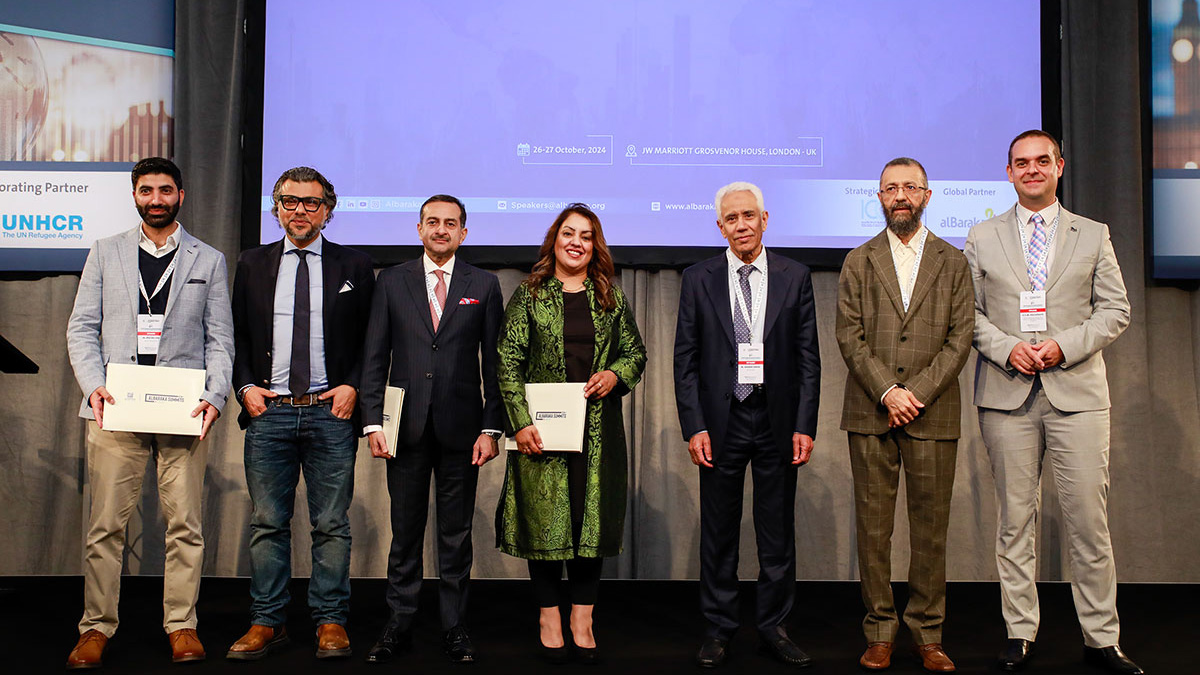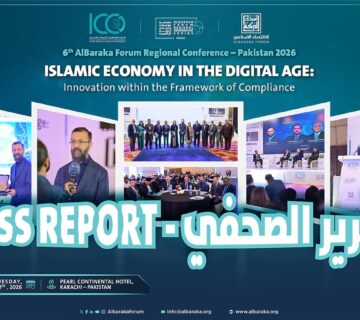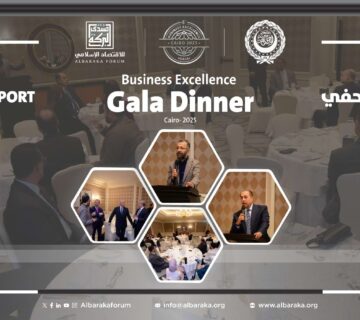The 3rd AlBaraka Summit in London was held on 26-27 October 2024 at JW Marriott Grosvenor House London- UK, under the theme “Global Prospects for Islamic Economics: A Path to a Sustainable, Ethical, and Innovative Global Economy”. Organized by AlBaraka Forum for Islamic Economy, this significant event aimed to elevate Islamic economics on a global scale, emphasizing its potential for economic and social impact.
Day One Events – October 26th 2024
Opening Ceremony
The opening ceremony of the summit commenced with Mr. Faraz Khan MBE, CEO & Partner of Spectreco US and Founder & Director of Seed Ventures, who served as the MC for the 3rd AlBaraka Summit in London. He energetically launched the event, expressing his delight in being part of the London summits over the years. Mr. Khan highlighted the fruitful outcomes and deliberations from past gatherings, which have resulted in collaborations, partnerships, and significant research papers. He noted the uniqueness of having a gathering filled with academics, private sector contributors, and scholars, all dedicated to forging a path for the future.
The summit’s events were inaugurated with a blessed recitation from the Holy Quran by Mr. Bilal Abu Jafar. The verses from Surah Al-An’am infused the ceremony with tranquility and purpose, setting a grounding tone for the summit’s vision moving forward. Together, these elements marked a meaningful and inspiring beginning to the proceedings.
The following speech was delivered by H.E. Mr. Yousef Hassan Khalawi, Secretary General of AlBaraka Forum for Islamic Economy. He underscored the summit’s significant responsibility in tackling pressing global challenges. He announced several upcoming projects by AlBaraka Forum that demonstrate resilience and commitment. Notably, he mentioned the launch of The Strategic Thinking Center for Islamic Economy next year, highlighting its focus on addressing strategic global issues.
Mr. Khalawi also addressed various global concerns, revealing ongoing initiatives aimed at sustainability. He expressed optimism about launching several projects next year that target net-zero carbon goals and environmental challenges, aligning these efforts with the principles of Maqasid Al-Shariah. Furthermore, he emphasized the critical importance of partnerships between the Forum and diverse entities to ensure collective success in achieving these ambitious goals.
On the first day, the keynote speeches were delivered by H.E. Naz Shah, Member of Parliament for the Labour Party in the United Kingdom, and H.E. Mr. Dino Selimovic, Advisor to the Minister of Foreign Affairs of Bosnia and Herzegovina.
H.E. Naz Shah MP expressed her deep honor and excitement to participate in the summit, underlining the significance of Islamic finance in the UK. She emphasized London’s role as a global hub for Islamic finance, opening up new avenues for discussion and potential growth in this sector.
Shifting her focus, she addressed the pressing issue of “Islamophobia,” spotlighting how the global Islamic financial market can positively influence the prevailing narratives. Naz Shah urged the audience to recognize their individual roles in reshaping perceptions through strategic investments and meaningful partnerships. Her call to action encouraged everyone to actively engage in fostering understanding and promoting inclusivity in the financial landscape.
Addressing the idea of changing the culture of Islamic finance in the UK, she stressed that the government needs to understand its role and what it could bring to the table. She highlighted that more than 6.5% of British people are Muslim, yet 77% of those aged 18 to 24 understand the concept of Islamic finance. However, when it comes to the older generation, the percentage decreases. Thus, she emphasized the role that this summit’s audience can have in influencing Great Britain.
H.E. Mr. Dino Selimović expressed his honor to attend the summit, beginning his remarks by paying tribute to the late Sheikh Saleh Kamel, may Allah have mercy on him. He acknowledged that Sheikh Kamel’s vision for Islamic economy and finance has had a profound impact worldwide. His efforts championed the principles of Islamic finance not only as an economic framework but also to promote justice, welfare, and cooperation among nations. Mr. Selimović affirmed a commitment to furthering this important vision.
He elaborated that Islamic economics presents a robust model capable of addressing global challenges while maintaining ethical and sustainable values. In his keynote speech, H.E. Mr. Selimović, Adviser to the Minister of Foreign Affairs of Bosnia and Herzegovina, suggested that presenting Islamic economy in more relatable terms could accelerate its growth and acceptance on a global scale.
He emphasized the significance of Islamic finance, with its emphasis on fairness and ethical investments, aligning closely with universal goals. For instance, he noted how zakat, or charitable giving, directly contributes to alleviating poverty and hunger.
Mr. Selimović emphasized the crucial importance of technology and innovation in Islamic finance. He noted that advancements such as artificial intelligence and blockchain have the potential to significantly improve transparency and reduce risks in financial services. Moreover, he addressed various challenges facing contemporary Islamic finance and economics, suggesting potential solutions to overcome these obstacles.
After the keynote addresses, the 3rd AlBaraka Summit in London featured an opening short video that showcased the capacity of Islamic economics to tackle current economic challenges through ethical, sustainable, and innovative approaches. The video illustrated how Islamic principles offer a transformative perspective on pressing issues like inequality, while also highlighting the AlBaraka Forum’s role as a leader in the field of Islamic economics. This presentation reinforced the summit’s theme of leveraging Islamic finance to create meaningful impact in the global economy. The opening ceremony concluded with H.E. Mr. Yousef Hassan Khalawi, representing the AlBaraka Forum, and Prof. Mehmet Asutay of Durham University, signing a memorandum of understanding (MOU). This partnership signifies a collaborative effort in the field of Islamic economics and finance.
During the event, Mr. Muhammad Atif Hanif, CEO of Al Baraka Bank Pakistan, received an honoraria certificate from H.E. Mr. Khalawi on behalf of Al Baraka Group B.S.C. (C) as a Global Partner. The presentation took place in the presence of H.E. Mr. Abdelilah Sabahi, CEO of Dar Saleh, highlighting the importance of these partnerships in advancing the Islamic finance sector.
In a gesture of gratitude, H.E. Mr. Yousef Khalawi honored the speakers of the ceremony, acknowledging their contributions to the field.
The First Thematic Panel of the 3rd AlBaraka Summit in London titled “Islamic Economics and Collective Responsibility: Unified Goals for a Shared Planet”.
Mr. Faraz Khan MBE, CEO & Partner at Spectreco US and Founder & Director of Seed Ventures, moderated the panel, emphasizing the importance of constructive dialogue. He highlighted that the unique perspective from which the topic is approached would provide valuable insights. Khan underlined the significance of exploring shari’ah principles of goodness and kindness within financial frameworks, underscoring the need for a holistic approach.
In this session, Prof. Paolo Pietro Biancone, a Full Professor of Business Administration and Islamic Finance at the University of Turin, Italy, addressed “Starting Points of Islamic Economics Economically, Financially, and Socially.” He discussed the core foundations of Islamic economics and finance while elaborating on principles of equality and wealth distribution. Prof. Biancone asserted that Islamic finance presents a robust ethical alternative to conventional finance, particularly in sustainability discussions.
Assoc. Prof. Dr. Ziyaad Mahomed, Lead Researcher at the Center of Islamic Social Finance, International Center for Education in Islamic Finance University (INCEIF), explored the historical evolution of Islamic finance and banking. He highlighted advancements from the golden age of Islamic civilization, such as the creation of sophisticated financial instruments like sakk (checks) and the establishment of waqf (endowments). Additionally, he presented Ibn Khaldun’s eight principles (1332 – 1406), which address key impacts and lessons relevant for advancing modern socio-economic development. Notably, he discussed the efficacy of Malaysian Zakat in Kenyan empowerment, illustrating how USD 1.2 million in zakat can generate an impressive USD 20 million.
In the first panel, Mr. Omar Shaikh, Managing Director of the Global Ethical Finance Initiative (GEFI), engaged the audience on the topic “Global Synergy: Crafting a Fair and Islamic Sustainable Economy Together.” Emphasizing sustainable finance, he examined various interpretations of sustainability while illustrating how Islamic economic thinking enhances this debate. He argued that integrating Islamic finance with sustainability, anchored in sacred principles, represents a transformative new paradigm.
As an expression of thanks and appreciation, H.E. Mr. Yousef Khalawi, Secretary General of AlBaraka Forum for Islamic Economy honored the first thematic panel speakers
The Second Thematic Panel of the 3rd AlBaraka Summit in London titled “A Visionary Outlook on Islamic Economics: Unfolding Opportunities and Managing Challenges”.
Mr. Nader El Nakib, Chief of Private and Philanthropic Partnerships MENAT at the UNHCR, skillfully moderated the panel titled “A Visionary Outlook on Islamic Economics: Unfolding Opportunities and Managing Challenges.” He emphasized the urgent state of global displacement, revealing that there are now 122 million refugees worldwide, a stark increase from less than half that number a decade ago.
Prof. Mehmet Asutay, from Durham University, addressed “The Islamic Moral Imperative: Enhancing Economic Systems with Values.” He examined the rise of new moral frameworks in sustainability and ethical business practices, contrasting instrumental ethics with substantive ethics.
Dr. Muhammad Meki of the University of Oxford discussed “Harnessing Equity Capital: Strengthening Communities and Fueling Economic Advancement.” He noted the increasing demand for Islamic finance to combat poverty and meet Sustainable Development Goals. He argued for the benefits of Musharakah-based contracts over traditional debt models for micro and small businesses, especially for risk-averse owners. Despite this, he pointed out the rarity of experimental applications in Islamic finance, highlighting a notable gap in opportunities.
Dr. Sefian Kasem, Global Head of ETF and Indexing Investment Specialists at HSBC, presented on “Capitalism’s Collateral Damage: Economic and Social Repercussions, and Islamic Economics Treats.” He examined the issues of economic inequality and the concentration of wealth, addressing criticisms directed at capitalist systems alongside potential Islamic solutions.
In his exploration, he highlighted the convergence of Environmental, Social, and Governance (ESG) principles with faith-based investment approaches. Dr. Kasem emphasized HSBC’s commitment to income purification for investors, noting that dividends from companies can result from their regular business operations, which may pose challenges for Shariah compliance.
He explained that while a large, diversified corporation may meet Shariah standards, it could still derive a small portion (less than 5%) of its revenue from activities that are non-compliant. This underscores the ongoing need for purification costs to ensure adherence to Islamic financial principles.
As an expression of thanks and appreciation, H.E. Mr. Yousef Khalawi, Secretary General of AlBaraka Forum for Islamic Economy honored the second thematic panel speakers.
The third Thematic Panel of the 3rd AlBaraka Summit in London titled “Pathways to Prosperity: Unpacking the Core Tenets of Islamic Economic Priorities”.
Mr. Sohail Ali, Partner at DLA Piper, adeptly moderated the third thematic panel titled “Pathways to Prosperity: Unpacking the Core Tenets of Islamic Economic Priorities.” His skill in fostering engaging discussions ensured a lively and enlightening experience. He emphasized that various terms commonly used by lawyers and industry experts—such as sustainability, collaboration, and financial inclusion—are fundamentally aligned with Islamic finance principles.
Dr. Muhammad Kabir Muhammad, Chief Compliance Officer at TAJBank Limited, delved into the “Challenges of Developing Communities and Countries through the Lens of Islamic Economics.” He focused on the critical issues of access to capital and financial inclusion, exploring how Islamic finance can help overcome barriers in developing economies. He highlighted the role of Islamic social finance instruments like Zakat, Sadaqah, and Waqf in community development.
Mr. Vladimir Malenko, Managing Director of Business Development at XTCC, addressed the topic “Islamic Economic Principles in Nurturing Skills for Innovation: Empowering Youth and Skilled Capacities for Global Impact.” He explored Islamic perspectives on entrepreneurship education, emphasizing its importance in fostering innovation and empowering the youth.
Mr. Rafi-uddin Shikoh, Chief Executive Officer and Managing Director of DinarStandard, delivered a compelling address on “Economic Empowerment through Production: Insights from Islamic Economic Genuine Practices.” He emphasized the potential of Islamic economic principles to drive sustainable industrial growth. Mr. Rafi highlighted the significance of integrating emerging Shariah-compliant entrepreneurs with established corporations from the Organization of Islamic Cooperation (OIC). This synergy can create a resilient and inclusive economy that empowers innovation.
He proposed that facilitating events like the AlBaraka Summit in London offers crucial opportunities for new businesses. Such gatherings provide mentorship and access to vital resources, ultimately contributing to the development of a vibrant Islamic economic ecosystem. By supporting these initiatives, we can nurture a landscape where innovation thrives, and economic empowerment becomes a reality for aspiring entrepreneurs.
As an expression of thanks and appreciation, H.E. Mr. Yousef Khalawi, Secretary General of AlBaraka Forum for Islamic Economy honored the third thematic panel speakers.
The fourth Thematic Panel of the 3rd AlBaraka Summit in London titled “Beyond Profit: Embedding Responsibility in Islamic Banks and Investment Solutions for Long-term Sustainability”.
A critical aspect of Islamic finance models lies in their foundation on ethical responsibility and sustainable impact, rather than solely profit motives. Dr. Abubaker Gaber Abubaker, Head of College and Vice-Chancellor at Al-Maktoum College, UK, moderated the fourth thematic panel titled “Beyond Profit: Embedding Responsibility in Islamic Banks and Investment Solutions for Long-term Sustainability.” He emphasized the Qur’anic basis of Maqasid al-Shari’ah, illustrating how its objectives prioritize socio-environmental impacts alongside financial returns.
Dr. Salah Alhammadi, Vice-Rector for Academic Affairs and Scientific Research at the Arab Open University, underscored the commitment to environmental conservation and sustainable development that align with Maqasid al-Shari’ah, showcasing the importance of integrating social and environmental considerations in investment strategies.
Mr. Muhammad Atif Hanif, CEO of Al Baraka Bank, Pakistan, discussed “Building an Islamic Digital Ecosystem: Integrating Technology for Social and Economic Progress.” He revealed that the global Islamic finance industry has grown to $4.5 trillion, with Islamic banking making up 70% of this total. While this growth is significant, Hanif acknowledged that it does not yet reflect the industry’s full potential and pointed out that Islamic banking has the capacity to engage a broader audience.
Dr. Widad Metadjer, Lecturer in Islamic Finance and Business Management at Al-Maktoum College for Higher Education in Dundee, tackled the topic “Best Practices in Innovation and Development: Lessons from Global Leaders.” She pointed out the strategies for fostering a culture of innovation: insights from leading Islamic innovators, exemplified by how the United Arab Emirates (UAE) focuses on innovation through initiatives like the Mohammed bin Rashid Innovation Fund and the Dubai Future Foundation. These efforts have driven advancements in technology and entrepreneurship.
As an expression of thanks and appreciation, H.E. Mr. Yousef Khalawi, Secretary General of AlBaraka Forum for Islamic Economy honored the fourth thematic panel speakers.
The fifth and final thematic panel, titled “Economic and Community-Led Development through Islamic Non-Profit Models”.
Bringing her conversational skills to the table, Dr. Aqsa Aziz, Senior Lecturer in Finance at the School of Economics, Finance and Accounting, Faculty of Business and Law, Coventry University, moderated the fifth thematic panel of the summit titled “Economic and Community-Led Development through Islamic Non-Profit Models.”
Mr. Haroun Atallah, Chairman of Islamic Relief Worldwide, addressed the topic “Initiatives and Impact of Waqf Endowments: Waqf as the Oldest Charity Institution,” discussing the historical development and evolution of waqf endowments. He showcased the Islamic Relief Waqf experience while highlighting that the first asset acquired partly using waqf funds was in 1993 for £375,000.
Dr. Hurriyah El Islamy, Chief Executive Officer and Founder of HGC Firm, tackled the topic “Economic and Social Empowerment of Small and Micro Enterprises (SMEs) through Qard Hassan Financing,” demonstrating the mechanisms of Qard Hassan financing from the perspective of how interest-free loans support SME growth. She presented an analysis of its strengths, weaknesses, opportunities, and threats, and highlighted its main challenges, such as the regulatory landscape and seed capital.
As an expression of thanks and appreciation, H.E. Mr. Yousef Khalawi, Secretary General of AlBaraka Forum for Islamic Economy honored the fifth thematic panel speakers.
Special Notes
Prof. Alija Avdukic, Professor of Political Economy and Islamic Finance at the School of Business, University of Dundee, started presenting his special notes titled “The Increasing Interest of International Organizations in Islamic Financial Tools to Achieve Islamic Economic Goals.” He focused on showcasing recognizable global entities and their Islamic finance-related activities, highlighting the adoption of Islamic financial tools by international organizations, and providing insights from the International Monetary Fund (IMF) and the World Bank.
As an expression of thanks and appreciation, H.E. Mr. Yousef Khalawi, Secretary General of the AlBaraka Forum for Islamic Economy, honored Prof. Alija Avdukic for delivering the special notes.
Closing Remarks
Ms. Aalia Jafar, Director of International Relations at The Islamic Chamber of Commerce and Development (ICCD), delivered a compelling closing remark on Day 1 of the 3rd AlBaraka Summit in London, honoring the enduring legacy of Sheikh Saleh Kamel, whose generosity and vision remain the summit’s driving force. Ms. Jafar underscored the most pressing themes discussed, such as fostering collaboration among Islamic economic institutions, the crucial role of political will in overcoming sector challenges, and the urgent need to develop comprehensive regulatory frameworks to guide and strengthen Islamic finance globally. She concluded her speech by announcing the theme of the next summit: “Islamic Economy in Non-Muslim Countries.”
As an expression of thanks and appreciation, H.E. Mr. Yousef Khalawi, Secretary General of the AlBaraka Forum for Islamic Economy, honored Ms. Aalia Jafar for delivering the closing remarks on Day 1 of the 3rd AlBaraka Summit in London.
Day Two Events – October 27th 2024
With motivational words, Mr. Faraz Khan MBE, CEO & Partner of Spectreco US and Founder & Director of Seed Ventures, marked the launch of the second day of the 3rd AlBaraka Summit in London.
The keynote speaker on the second day, H.E. Mr. Necmeddin Bilal Erdoğan, Chairman of the Board of Trustees, İlim Yayma Foundation in Istanbul, reflected on the essence of Islamic finance, emphasizing its role in promoting corporate social responsibility, supporting green industries, and investing in the youth. It’s not just “finance for the sake of finance”; it is an economic and finance model with purpose, underscoring the need for Islamic finance to reconnect the financial system with its underlying goals, advocating for a model centered on social benefit rather than pure profit.
Workshop
On the sidelines of the 3rd AlBaraka Summit in London, an informative workshop titled “Sukuk as High-Quality Liquid Assets: Structures and Navigation Liquidity Crunches in Financial Markets”has just kicked off, presented by H.E. Mr. Mohamad Safri Shahul Hamid, Chief Executive Officer of The International Islamic Liquidity Management Corporation (IILM).
H.E. Mr. Mohamad Safri Shahul Hamid started presenting the workshop by clarifying general terms such as sukuk, bonds, and the global sukuk outlook. He highlighted that global sukuk issuance is set to rise in Q4 2024 and into 2025, driven by improved financing conditions following the US Federal Reserve’s rate cut to 5%. He also clarified that, with rates expected to decline to 3.5% by the end of 2025, increasing investor appetite for US dollar-denominated emerging market debt, particularly sukuk, will be bolstered by stable GCC liquidity. However, sharia complexities, geopolitical risks, and oil price volatility remain potential headwinds.
Special Session
The summit concluded with a special session entitled “Innovation in Islamic Economics: A Special Session Featuring PhD Research from British Universities in Islamic Economics and Finance,” in which seven lecturers from four British universities participated.
From SOAS University, and under the theme “Islamic Commercial Law and Legal Solutions for Disputes,” researcher Abdulkader Thomas presented on the topic “Maqasid Tools to Evaluate Secular Insolvency Laws,” and researcher Fara Mohammed discussed the topic “Integrating a Just Environmental Framework in Islamic Commercial and Financial Law.”
From Dundee University, under the theme “Islamic Socio-Economic Concepts in Sustainability and ESG,” researcher Serly Andini Restu Putri presented on the topic “Income Generating Waqf for Poverty Alleviation: A Case Study of Central Java, Indonesia,” and researcher Shireen Mardani discussed the topic “Divine Economics: The Role of Abrahamic Religions in Shaping Behaviors.”
From Durham University, under the theme “Islamic Economics and Contemporary Economic Issues,” researcher Mehmet Artik presented on the topic “Constituting Islamic Moral Economy: Islamic Value Theory, Mode of Production, and Islamic Transdisciplinary Knowledge,” and researcher Muchammad Taufiq Affandi discussed the topic “Improving Financial Inclusion through AI-Powered Maqasid Psychometrics.”
From Anglia Ruskin University, under the theme “Islamic Banking and Investment,” researcher Sarah Ahmed Youssef presented on the topic “How Does ESG Performance Impact Financial Performance for Sharia-Compliant Firms? A Cross-Country Analysis.”
The summit is supported by:
- Al Baraka Group B.S.C. (C) – Global Partner to the AlBaraka Forum for Islamic Economy in AlBaraka Summits
- Islamic Chamber of Commerce and Development (ICCD) – Strategic Partner
- United Nations High Commissioner for Refugees (UNHCR) – Collaborating Partner
Special Session Academic Supporting Entities:
- University of Dundee
- SOAS (School of Oriental and African Studies)
- Anglia Ruskin University (ARU)
- Durham Center for Islamic Finance
Workshop Supporting Partner:
- International Islamic Liquidity Management Corporation (IILM)
The 3rd AlBaraka Summit held in London marked a significant milestone in the increasing interest surrounding Islamic economics and finance, bringing together a wide range of stakeholders. Policymakers, industry leaders, academics, and various attendees from different countries and backgrounds convened, fostering a rich dialogue on pressing global economic trends.
This gathering underscores the forum’s importance, highlighting its influence not just within the UK but on a global scale. The event emphasizes the universal relevance of ethical finance practices and principles that transcend cultural boundaries. As the demand for sustainable investment options continues to grow, the AlBaraka Summit emerges as a guiding light for innovative approaches in this evolving sector.
The participants’ diverse perspectives contribute to a vibrant atmosphere, facilitating discussions that inspire actionable insights. This summit not only reflects the current landscape but also charts a course for future developments, reinforcing the need for collaborative efforts in Islamic finance and sustainable investment.




